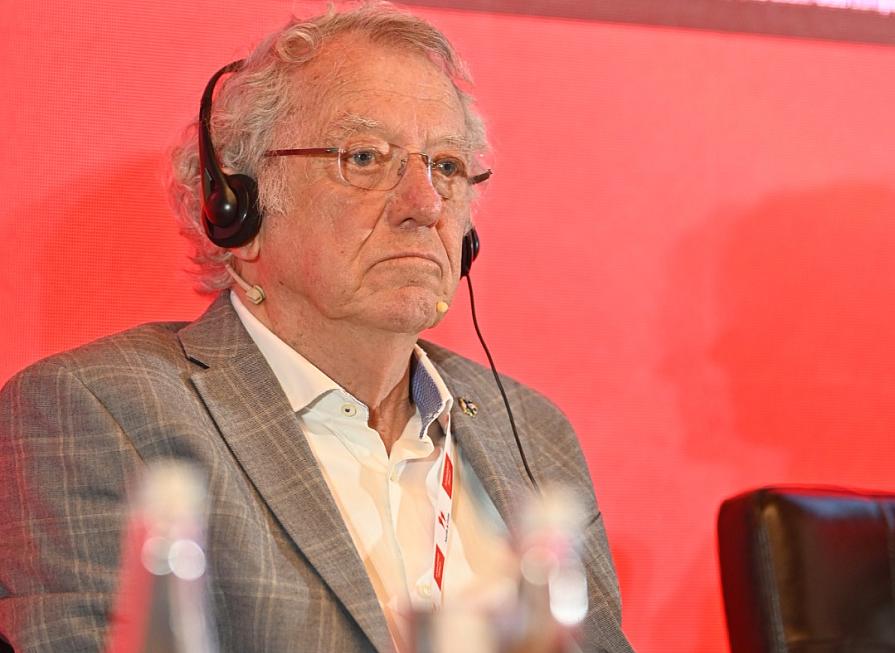 “Think global while acting local” is hard to implement, which is why a high rate of failures in assignments abroad is a...
“Think global while acting local” is hard to implement, which is why a high rate of failures in assignments abroad is a...
(Order modifying and completing the Order 53/25/2011 and Order approving the format and the content of various...
(Order of President of National Agency of Fiscal Administration no. 73 / 2011, published in the Official Gazette no. 89 ...
The leadership style is yet another area where cultural intelligence is required and where local cultures play an important role. The sort of leadership valued in the Netherlands is, for example, a weakness in Romania, where authoritative leadership is seen as a strength. On the same note, the qualities of a good leader in the US would not necessarily work in Central and Eastern Europe. We'd love to hear your stories and experiences when it comes to intercultural leadership in the CEE region.
(Emergency Ordinance no. 117 / 2010, published in the Official Gazette no. 891 / 30 December 2010)
The Emergency...
Romania has often been labeled as one of history’s greatest survivors. A past of invasions and occupations, Romania has recently undergone dynamic social and economic changes and joined the EU in 2007. While the country attempts to leave behind its communist past, present day attitudes and traditions still reflect this part of its turbulent history. Modest attitudes and behaviors coupled with Orthodox Christian beliefs reflect their simple-minded and down-to-earth mentality that has been shaped by years of hardship.
In the previous article we discussed the challenges that the leader of the team of engineers– a Colombian woman- had to go through. The mixture of cultures made this unique experience a bit spicy – five British and four Indian specialists were not mixing well, in fact the results of the projects showed that there was no team established at all. Now let's see how would things look like if the leader of the team were a Romanian woman. Feel free to add you insights on the situation by e-mailing irina-budrina@hotmail.com.
Different nationalities working together, different cultures mixing in the working place could lead to a tough combination, especially for the leader of the team. We have received the following story from one of our readers. It involves British, Indian and Colombian colleagues. What do you think would have happened if any of these people in the story were replaced with Romanians?
Profits tax computation and declaration for the 2010 tax year
In respect of the profits tax computation...
Romania-Insider.com starts a series of articles on intercultural communication, focusing on practical aspects that will help you deal with your Romanian business partners as well as with partners in the Eastern Europen region, while bridging the cultural differences between them. Read the introductory article of this series below and feel free to send us your ideas or examples of actual situations where more knowledge on intercultural communication would have come in handy.
 “Think global while acting local” is hard to implement, which is why a high rate of failures in assignments abroad is a...
“Think global while acting local” is hard to implement, which is why a high rate of failures in assignments abroad is a...
(Order modifying and completing the Order 53/25/2011 and Order approving the format and the content of various...
(Order of President of National Agency of Fiscal Administration no. 73 / 2011, published in the Official Gazette no. 89 ...
The leadership style is yet another area where cultural intelligence is required and where local cultures play an important role. The sort of leadership valued in the Netherlands is, for example, a weakness in Romania, where authoritative leadership is seen as a strength. On the same note, the qualities of a good leader in the US would not necessarily work in Central and Eastern Europe. We'd love to hear your stories and experiences when it comes to intercultural leadership in the CEE region.
(Emergency Ordinance no. 117 / 2010, published in the Official Gazette no. 891 / 30 December 2010)
The Emergency...
Romania has often been labeled as one of history’s greatest survivors. A past of invasions and occupations, Romania has recently undergone dynamic social and economic changes and joined the EU in 2007. While the country attempts to leave behind its communist past, present day attitudes and traditions still reflect this part of its turbulent history. Modest attitudes and behaviors coupled with Orthodox Christian beliefs reflect their simple-minded and down-to-earth mentality that has been shaped by years of hardship.
In the previous article we discussed the challenges that the leader of the team of engineers– a Colombian woman- had to go through. The mixture of cultures made this unique experience a bit spicy – five British and four Indian specialists were not mixing well, in fact the results of the projects showed that there was no team established at all. Now let's see how would things look like if the leader of the team were a Romanian woman. Feel free to add you insights on the situation by e-mailing irina-budrina@hotmail.com.
Different nationalities working together, different cultures mixing in the working place could lead to a tough combination, especially for the leader of the team. We have received the following story from one of our readers. It involves British, Indian and Colombian colleagues. What do you think would have happened if any of these people in the story were replaced with Romanians?
Profits tax computation and declaration for the 2010 tax year
In respect of the profits tax computation...
Romania-Insider.com starts a series of articles on intercultural communication, focusing on practical aspects that will help you deal with your Romanian business partners as well as with partners in the Eastern Europen region, while bridging the cultural differences between them. Read the introductory article of this series below and feel free to send us your ideas or examples of actual situations where more knowledge on intercultural communication would have come in handy.














